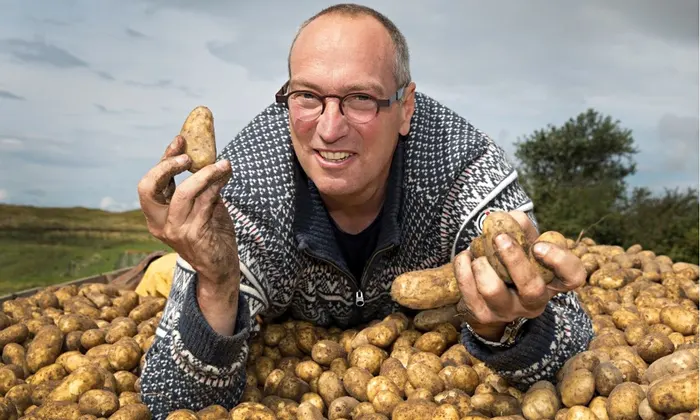Marco Crescenzi|
Social innovation may have different forms, included that of a potato.
NGOs, governments, ecologists, and the World Bank consider the shortage of drinking water one of the main causes of poverty. One-fifth of the world’s population lives in drought areas, and climate change will worsen this problem. In addition, 50% of the world’s farmed surface is threatened by a huge quantity of salt, with salt extraction plants that are too expensive for developing countries.
If sea water could be used for irrigation, it would be a breakthrough for humankind.
Well, this dream might become a reality. Marc Van Rijsselberghe has found a solution. He tried to solve the problem for his little farm in Texel, a little “godforsaken” island in the Northern Netherlands, whose water has a high salt percentage and where cultivations are difficult. “We tried to consider salt water as an opportunity, not as a threat”: this is what Van Rijsselberghe told the Guardian.
Van Rijsselberghe then started cooperating with Amsterdam Free University to test produces for cultivation which were resistant to high-salt quantity environments. He specified: “We are a deal of freakish people who want to change things, not write a PhD thesis”.
This “freakish” cooperation gives origin to Humble Spud, a “humble” potato that The Guardian is sure will mark a revolution in food. Not a “superpotato” or a GMO, no tricks! It’s a simple potato which can be cultivated in high-salt quantity areas due to its high sugar intake. With the latter compensating the amount of salt, it can be largely eaten.
But there’s more, dear social innovators and entrepreneurs.
The success of the project was not connected to a single hero, but thanks to the cooperation-contamination of several actors: a desperate and determined 59-year-old farmer, a university, a Government Agency, and some NGOs. The project won the prestigious “USAID grand Challenge Award” and beat the other 560 competing projects from 90 countries. Thanks to a partnership with Dutch development consultants MetaMeta, several tonnes of the Texel seed potatoes are now on their way to Pakistan to see whether they can adapt to the Asian climate.
Moreover, the Challenge Prize formula and the “Social Innovation Prize” are extremely innovative. According to Marco Zappalorto – manager at Nesta (The UK Agency for Social Innovation) and Senior Adviser and Trainer for the Master in Social Innovation, Social Business, Social Start up and Project Innovation – it could become the turning point in “public procurement”- in the relationship between Public Administration, Non Profit Organizations and citizens. By replacing traditional tenders with a competition focused on the innovative management of a problem, what really matters is the innovative project and not being backed by some government officer. What really counts is innovation.
Besides, this revolution in food is GMO-free and comes out without being managed by multinationals, as it develops thanks to NGOs.
More and more NGOs are taking responsibility for global development, both agricultural and economic, with all-encompassing and innovative policies. They are implementing comprehensive and innovative policies, such as Oxfam in South America and Brac in Bangladesh, which is essentially a social state in its own right. Brac has its own banks, schools, hospitals, companies, and generates over half a billion dollars in social business.
However, it’s important to recognize that many multinational corporations are also involved in socially responsible and credible social innovations. In fact, partnerships with these corporations could be useful, though not essential.
To achieve such outcomes, it’s fundamental to have skills and innovation in technology, as well as collaboration and interaction among various stakeholders.
Even something as seemingly simple as a potato can have a significant impact in this regard.


